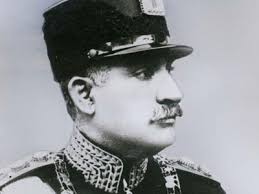If you read Russian, here it is. If you don't read Russian, most of the content is in English in this previous post.
Редакционная статья
Новый Русский Танк Угроза
Соседям
Сержант Нил Гуссман, Армия
CША
В прошлом году русская армия показала миру совершенно новый
танк на параде победы России во Второй мировой войне.
Новый танк, Армата Т-14, представляет собой настоящий прорыв
в технологии танка. В течении
следующих пяти лет Россия будет строить более двух тысяч новых танков для своей армии.
Когда Россия производит новые танки она говорит миру что танки становятся центральным
стратегическм оружием для будущих
сражений. США и другие западные армии медленно удаляют танки из своих военных
планов.
С 1976 по 1979 год, когда я был командиром танка в армии США
в Европе, мы тренировались бороться
против вторжения советских войск. Советская Армия имела больше людей,
больше танков, больше самолетов. Война
никогда не произошла, но мы считали что это произойдет. И мы готовились к
отчаянной борьбе.
Наши танки были лучше, но у Советского Союза было гораздо
больше танков. Почти все что мы знали о советских танках мы узнали из отчетов 1973 года арабо-израильской войны или
войны Судного дня.
Один из этих докладов дал
статистику по травматизму в
зависимости от места нахождения в танке:
• Командующий
60%
• Канонир 25%
• Погрузчик
10%
• Водитель 5%
Другой способ проанализировать эти цифры: 95% ранений
происходит в башне, 5% в корпусе.
В Т-14 членов экипажа
в башне нет. Трое членов экипажа сидят в корпусе танка. Т-14 первый танк с дистанционным управлением
башни. Конструкция Т-14 обеспечивает
защиту экипажа намного больше, чем у других танках.
Две основные причины использования танков в современной
войне:
1. Борьба с другими танками.
2. Прорваться
через линию фронта чтобы атаковать линии снабжения.
Создавая новые и лучшие танки, Россия заявляет, что будет бороться танками.
Русская армия планировает сражаться в таких местах где легко можно транспортировать большое
количество танков. Это означает вдоль своих границ или в соседних странах.
Отправлять танки через океан медленно и дорого. Россия рассчитывает бороться в
местах где грузовики и поезда могут
транспортировать танки.
Я считаю, что строительство 2000 новых танков говорит что
Россия не собирается вести войну с
Америкой, но собирается воевать со
своими соседями. США планирует вести войну с террористами. Большая
современная танковая армия может атаковать соседние страны или защищать Россию
от Китая.
Т-14 сравнивается с другими передовыми танками в статье Regnum.ru веб-сайта. Они опубликовали большую
статью Сергея Кузьмичева о Т-14 .Он
говорит что Германия и Франция планируют построить современный танк, но он не
будет готов в течение многих лет. США не имеет никаких планов для строительства нового танка. Китай
разрабатывает новый танк, но его новый танк похож на западны танки 20 лет назад. Только у Израиля есть танк
который соответствует Т-14.
Т-14 далеко впереди других крупных стран в области
технологий. Почему бы Россия тратит так много денег чтобы сделать лучший танк в
мире? Потому что Россия может продать танки в страны, которые покупают российские
танки. Россия делает танки, которые находятся в армиях во всем мире.
Россия делает танки чтобы иметь сильную армию. Россия также
делает танки чтобы продавать в другие страны. Википедия перечисляет танки всех
армий мира. Список включает в себя тип и
страну, в которой были построены танки.
Почти во всех странах есть танки и большинство стран имеет
танки сделанные в России. Потому что Россия имеет так много
"клиентов", новый Т-14 также
является оружием маркетинга. Россия делает новейшие поколения танков.
Наций которые покупают российские танки покупают новейший танк с новейшей
технологией.
Лучший танк в мире российский танк Т-14. Это также
принесет Россие большой доход от стран
мира которые покупают Т-14.









